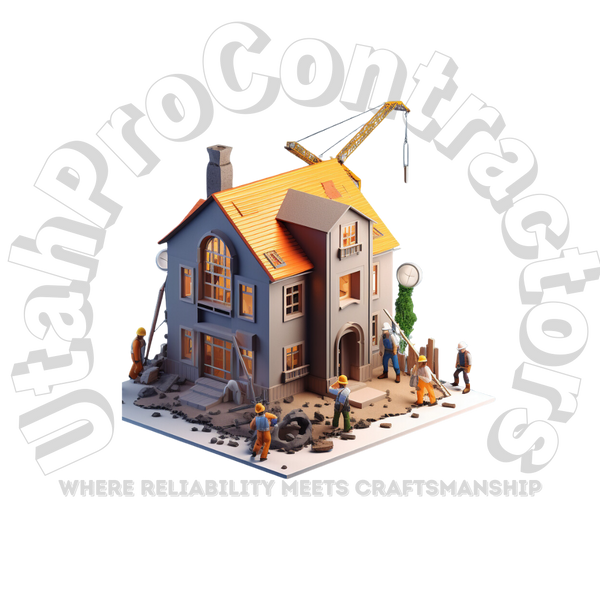Composite vs. Wood Decking: Making the Right Choice for Your Utah Home
Are you considering building a new deck or upgrading your existing one in Utah? One of the most critical decisions you'll face is choosing between composite and wood decking materials. Each option comes with its own set of pros and cons, along with considerations specific to Utah's climate. Let's delve into the comparison to help you make an informed decision.
Composite Decking:
Pros:
- Low Maintenance: Composite decking requires minimal upkeep, typically only needing occasional cleaning with soap and water.
- Durability: Resistant to rot, mold, and insect damage, composite decking tends to have a longer lifespan than wood.
- Color and Texture Options: Available in a wide range of colors and textures, composite decking offers versatility to match various aesthetic preferences.
- Environmentally Friendly: Made from recycled materials and often recyclable itself, composite decking is considered more eco-friendly than wood.
Cons:
- Higher Upfront Cost: Composite decking typically comes with a higher initial investment compared to wood.
- Heat Retention: Some composite decking materials may retain more heat than wood, potentially making them uncomfortable to walk on during hot summer days.
- Susceptibility to Scratching: While highly durable, composite decking can be prone to scratching, particularly in high-traffic areas.
Average Price Comparison in Utah:
The average price for composite decking materials in Utah ranges from $7 to $12 per square foot, including installation. Keep in mind that prices may vary based on factors such as brand, quality, and additional features.
Wood Decking:
Pros:
- Natural Aesthetic: Wood decking offers a timeless, natural look that many homeowners appreciate.
- Lower Initial Cost: Generally, wood decking materials are more budget-friendly upfront compared to composite.
- Cooler Surface Temperature: Wood decking tends to stay cooler underfoot than composite, making it more comfortable in hot climates.
- Easy to Repair: Damaged wood decking can be repaired or replaced relatively easily, offering greater flexibility for maintenance.
Cons:
- High Maintenance: Wood decking requires regular sealing, staining, and maintenance to protect against moisture, rot, and insect damage.
- Prone to Warping and Splintering: Without proper maintenance, wood decking can warp, splinter, and deteriorate over time.
- Limited Color and Texture Options: While natural wood offers its own beauty, it lacks the extensive color and texture options of composite decking.
Comparison for Utah's Climate:
In Utah's varied climate, both composite and wood decking can perform well with proper care. However, composite decking's resistance to moisture, mold, and insect damage may make it particularly advantageous in regions with fluctuating temperatures and occasional humidity. Wood decking, on the other hand, may require more diligent maintenance to withstand Utah's dry summers and occasional winter snow.
Ultimately, the choice between composite and wood decking depends on your budget, aesthetic preferences, maintenance preferences, and long-term goals for your outdoor space. Consider these factors carefully to select the decking material that best suits your needs and enhances the beauty and functionality of your Utah home.


